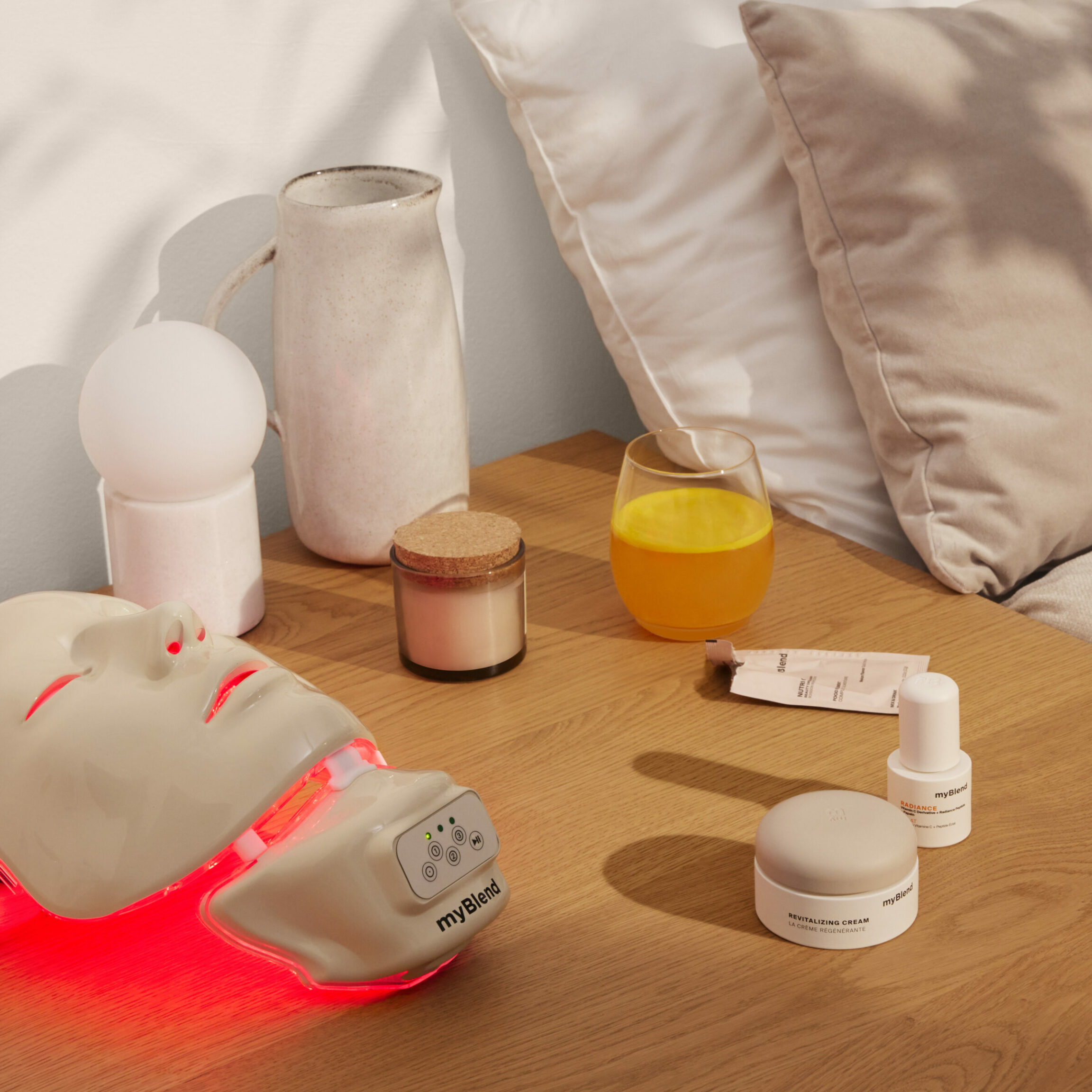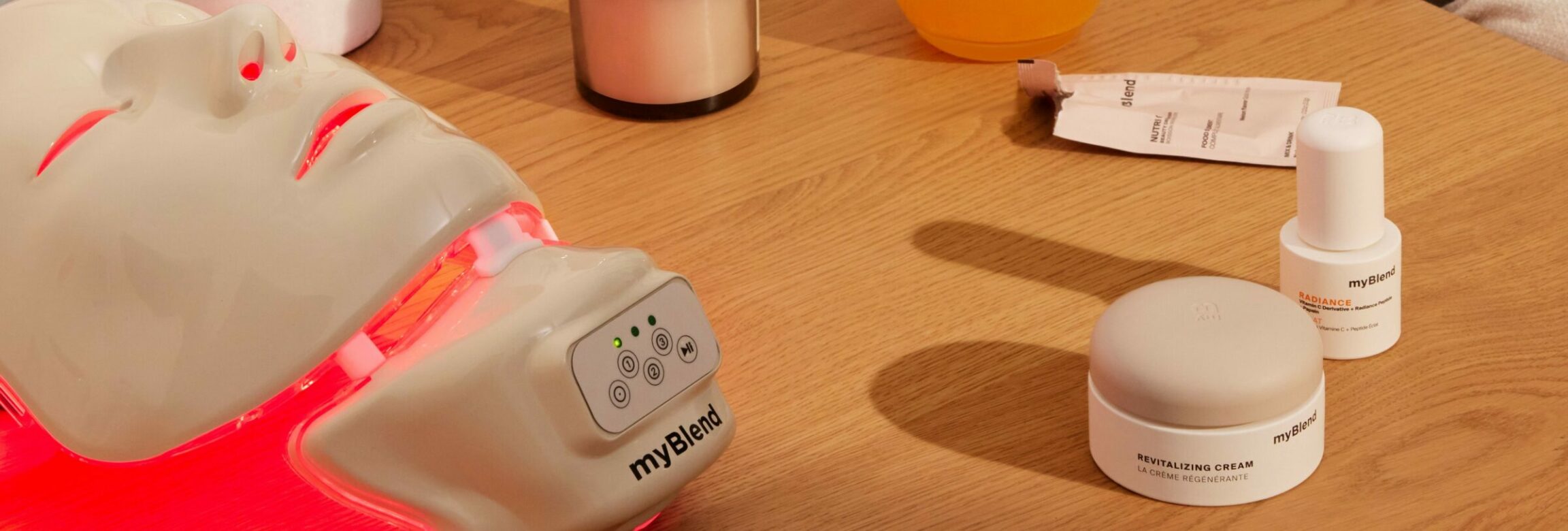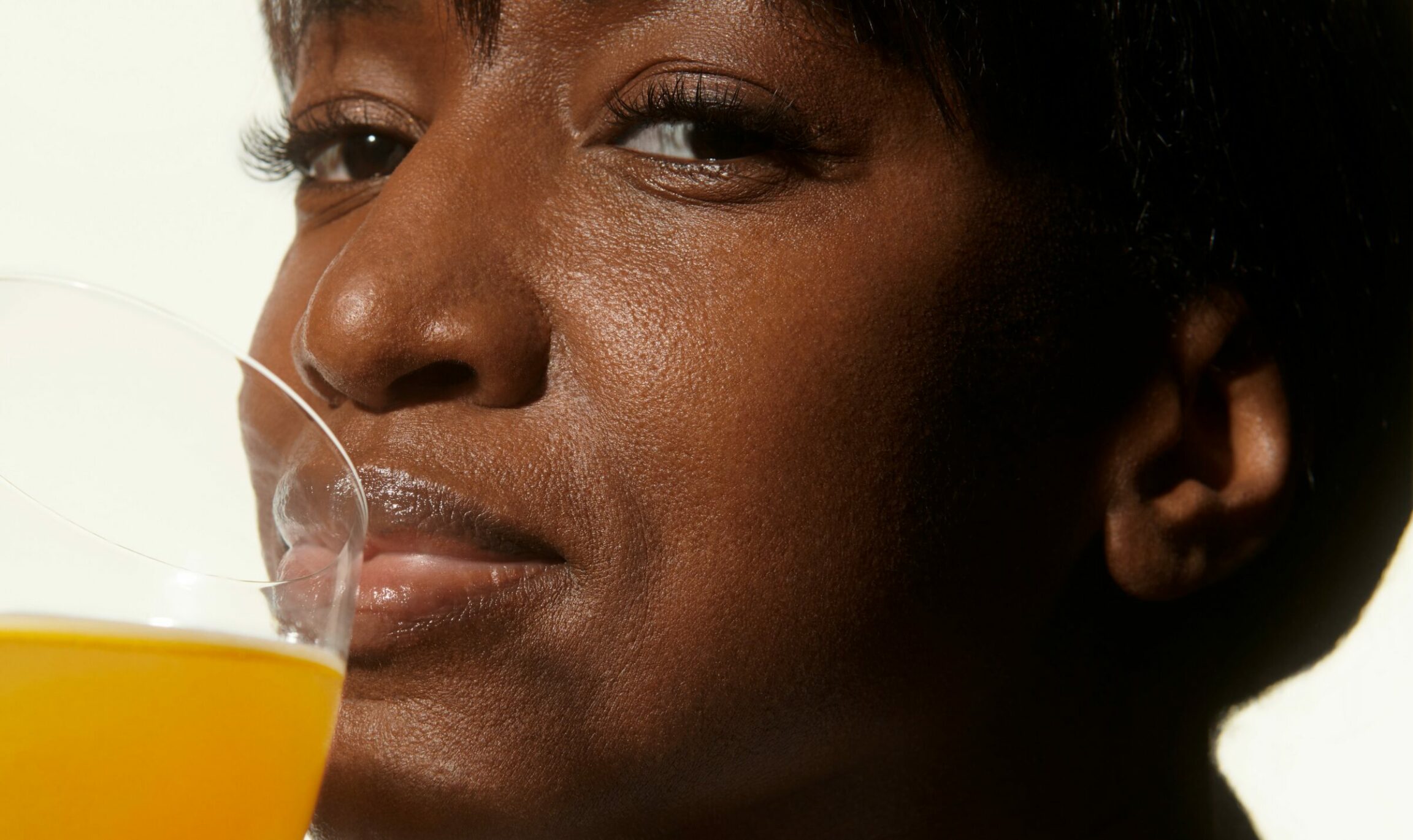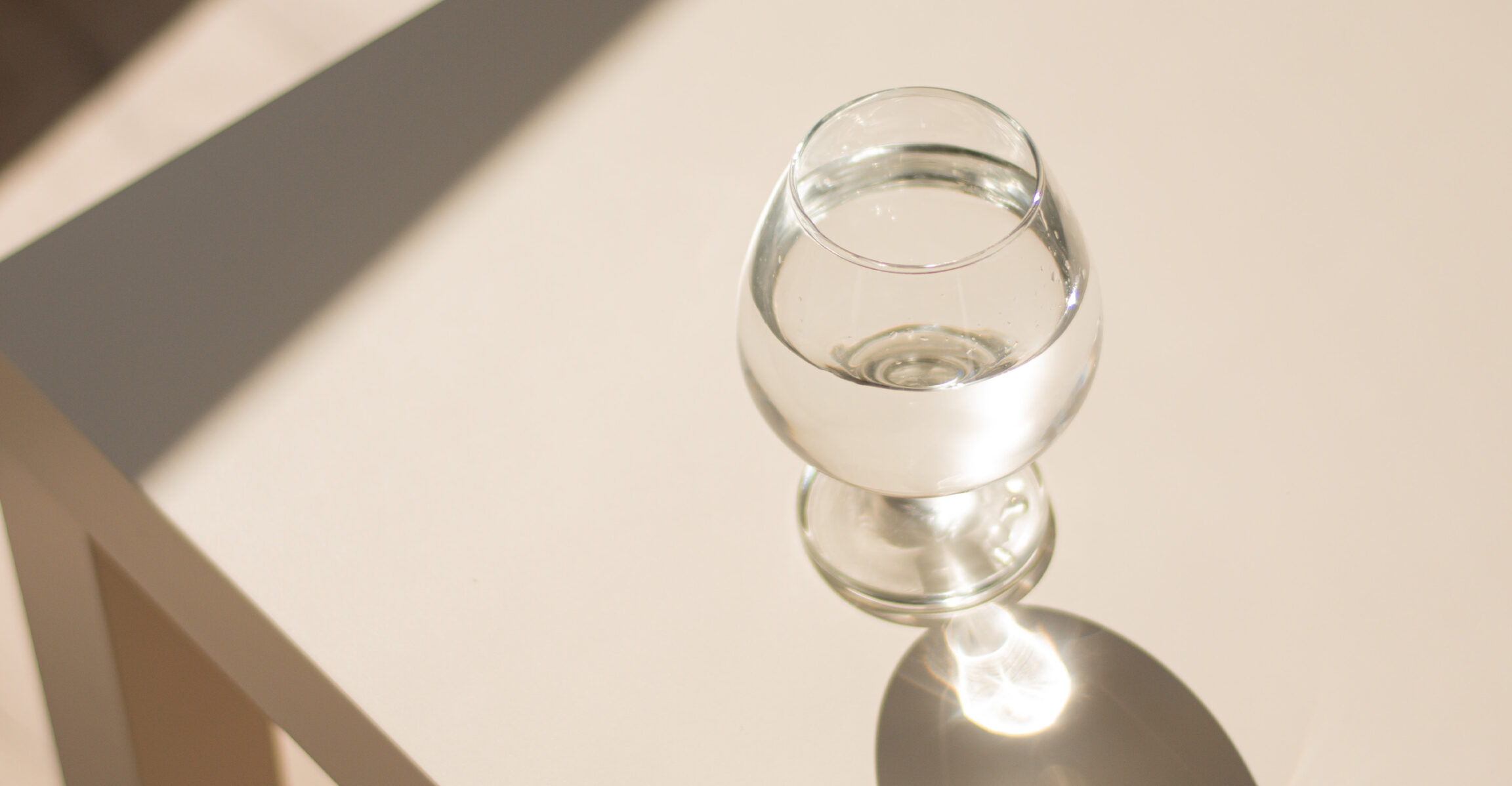


Lifestyle / Advice
May 5th, 2022
Holistic beautY & beautiful skin
Emotions, lifestyle, environment, personal history: the skin is an open book that tells a person’s life story. While we all know that a healthy lifestyle is important to stay fit and well, it is just as important to keep the skin balanced and radiant. And there’s a name for that: holistic beauty.
The skin is not the same throughout. It is actually made up of three layers. The first is the epidermis, the thinnest layer, and our first line of protection against external aggression. Then comes the thicker dermis, which gives the skin its suppleness and firmness because it contains many collagen and elastin fibres. And finally, there is the hypodermis, the very thickest and deepest layer.
A direct connection between the brain and the skin’s nervous system
This three-part structure is a clear indicator that the skin requires a holistic approach. Obviously, the role of cosmetics is crucial in treating the epidermis and nurturing its role as a barrier against external aggression. But a more holistic approach is required to keep all the layers healthy.
Recent scientific discoveries provide a great starting point for this discussion, in particular those by the French professor Laurent Misery. Head of the dermatology department at the University Hospital of Brest, and director of the neuroscience laboratory at the University of Western Brittany, this specialist in the link between the skin and the brain has studied how neuromediators – chemical messengers that circulate between the skin and the nervous system – influence the internal workings of the skin.
The discoveries indicate that neuromediators can influence tissue thickness, as well as collagen and sebum production, skin pigmentation, or even the body’s immune response.
The skin, a window to our emotions
This connection between the skin and the brain is clear when we consider the physical manifestations of our emotions: our skin flushes red when we feel anger and white in the face of fear. It glows when we’re happy and turns dull when we’re sad or depressed. So much so that according to Doctor Danièle Pomey-Rey, a dermatologist and psychoanalyst at Saint-Louis Hospital in Paris (France), 80% of skin diseases have a psychological origin. “A person affected by a skin disorder is someone who has a lot to say, but cannot put their feelings into words. The person therefore speaks through their skin.” Psoriasis can be a sign of suppressed anger, eczema of anxiety, acne a possible manifestation of grief or a period of intense stress.

Lifestyle and skin health are closely connected
All these findings suggest that skin health is heavily dependent on moods, and the stress of daily life. By “stress” we mean all the negative influences that our skin encounters throughout the day. Schematically, the concept of holistic beauty divides these influences into two categories: environment and lifestyle.
The disruptive environmental factors that attack the skin barrier – the epidermis – are pollution, sunlight and humidity. The first releases radicals which weaken the hyaluronic acid and collagen molecules responsible for the skin’s elasticity. The second emits UV-A, which penetrates deep inside the skin and damages the collagen structure. The third – a lack of humidity (especially in winter when the air is drier) – ramps up desquamation and leaves the skin dehydrated. In all cases, the consequences are the same: dark spots, a loss of elasticity, and deeper wrinkles!
As well as these external factors, our way of life has a considerable influence, on the body’s overall health of course, and on the skin in particular. Sleep, physical activity and eating habits are the key points here. Researchers from the British university Saint Andrews have shown that exercising, burning fat, and sleeping well at night all contribute to the colour tones of the skin. A balanced diet is also said to influence the balance and beauty of the complexion. The epidermis picks up the colour pigments contained in some fruit and vegetables.

Common sense tips for glowing skin
The conclusion of all this research is very clear. Glowing skin naturally requires a more holistic beauty routine. The first step is to acquire skincare products that suit your needs, such as a skincare cream. But you also need to go further and think holistically. That means following a few simple guidelines:
- Sleep well, because the skin regenerates its natural defences best during the night.
- Protect yourself from the sun by keeping your face and body in the shade as much as possible and/or using a SPF 50 sunscreen designed for your skin type; and steer clear of pollution.
- Eat a balanced diet packed with natural produce. Go for foods that are in season and rich in vitamins, lean proteins, trace elements, Omega 3 acids and antioxidants (fish, lean meat, fruit, vegetables, etc.).
- Stay hydrated: drink at least two litres of water each day (watch out, tea or coffee don’t count, because they dehydrate).
- Find ways to improve how you manage stress and emotional upheaval, for example with a method such as mindfulness meditation, sophrology, cardiac coherence, behavioural therapy, and so on.
- And of course, get regular exercise to keep your skin looking radiant.
It’s nothing we can’t handle, especially because this holistic beauty approach is connected with our overall well-being and can produce positive effects on the face and body in just a few weeks!